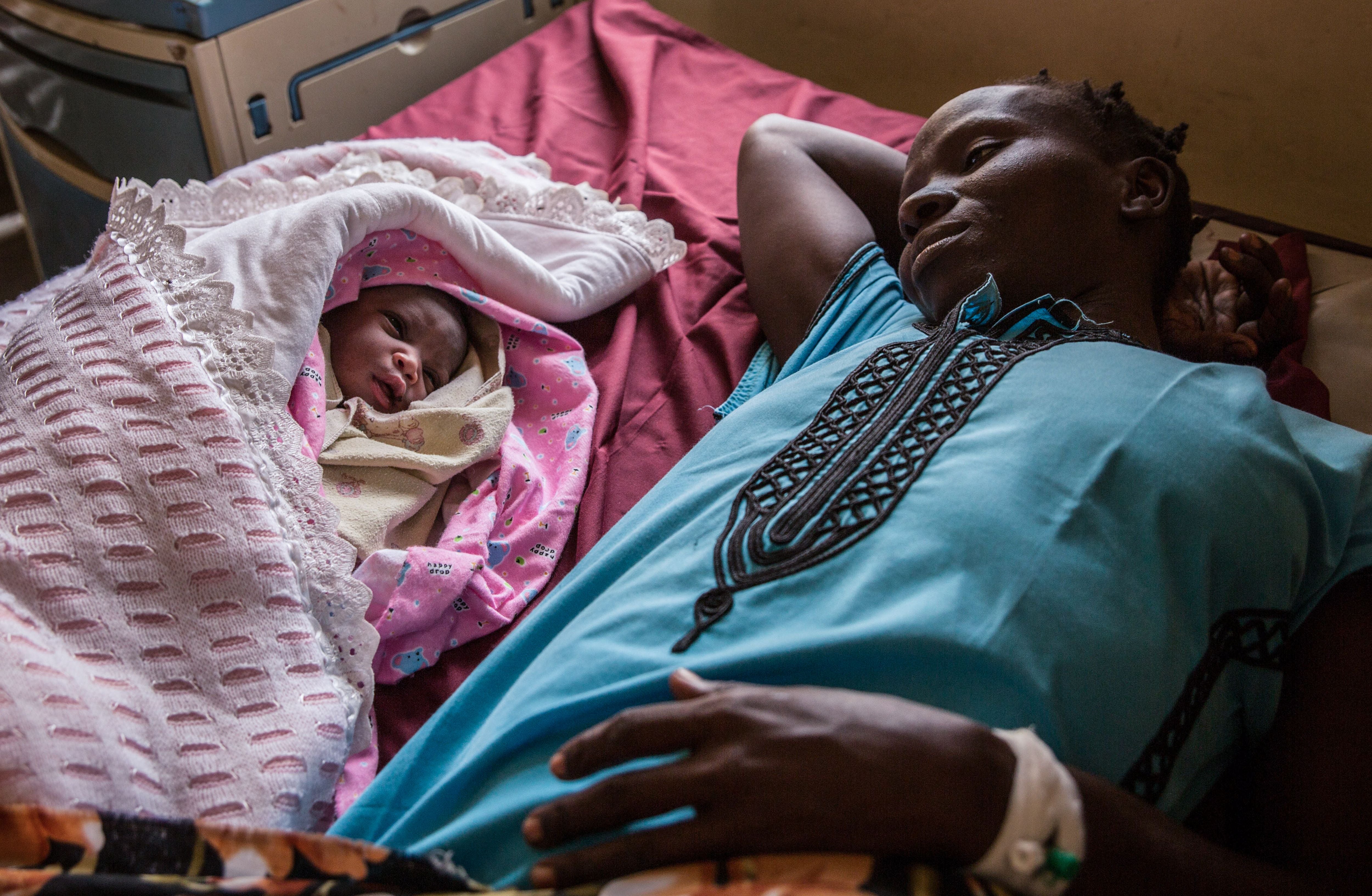‘A perilous future’: UK aid budget cuts will ‘cause’ 23,500 maternal deaths
Exclusive: Cuts will leave extra 6.5 million people unable to get contraception

The UK’s cuts to the aid budget will result in 23,500 women dying while pregnant, during childbirth or from unsafe abortions which go wrong, experts have warned.
MSI Reproductive Choices, a leading reproductive health charity, estimates the maternal deaths will be the result of cuts to its services, leaving an extra 6.5 million people in the most “marginalised, remote” areas not able to get the contraception they “desperately” require.
Data, shared exclusively with The Independent, shows cuts will cause an additional 2 million dangerous backstreet abortions and 7 million unintended pregnancies.
The UK axed its foreign aid spending from 0.7 to 0.5 per cent of national income – which amounts to an estimated £4bn – in November.
Boris Johnson dodged a potential defeat in the Commons on the aid cut on Monday.
Simon Cooke, the chief executive of MSI Reproductive Choices, which provides abortion and contraception around the world, said: “We are bitterly disappointed that MPs have not been given the chance to vote on whether to reverse the disastrous cuts to the aid budget. These cuts are already causing intense suffering.”
He noted the UK is the only G7 member to be reducing aid this year, as he warned women and girls in the most impoverished areas of the world cannot simply be neglected.
Cuts to “reproductive healthcare will have a devastating impact on women in the world’s poorest countries for years to come”, Mr Cooke said.
He added: “Not only will health clinics and teams be forced to close, but cuts to UNFPA [United Nations Population Fund] mean that even those teams that survive the cuts will be left empty-handed, with nothing to offer the women and girls who rely on our services.
“We know from our experience under the Trump administration that if you take contraception away, unintended pregnancy increases and women are left with no option but to resort to unsafe abortion, risking their health and their lives.”
He noted the British government publicly voices support for girls’ education but is nevertheless removing an important “enabler” that allows girls to remain in school.
“In Niger, one in two girls will give birth before their 18th birthday, but only one in 100 will finish secondary school,” he added.
“We can’t allow short-term cost savings to undermine a decade of progress on gender equality. Unless others urgently step forward to fill this funding gap, the impact will be catastrophic for a generation of women and girls.”
Mr Cooke warned it is a particularly troubling time to make cuts to contraception given healthcare systems are at “breaking point” from the pandemic.
He said: “Giving women and girls the power to make reproductive choices is one of the smartest global investments, costing less than 2 pence per day to protect a young woman from an unintended pregnancy, giving her the chance to stay in school, forge a career, or even save her life.”
The Conservative Party pledged to spending 0.7 per cent on overseas aid in its 2019 general election manifesto, with the Foreign, Commonwealth & Development Office now insisting the cuts are a “temporary measure” triggered by the Covid crisis.
But aid agencies have warned the cuts will claim the lives of tens of thousands of people already struggling to subsist in nations like Syria, Yemen and South Sudan.
MSI Reproductive Choices, which is demanding the government urgently reimposes the 0.7 per cent commitment to international aid, will be grappling with a £45m funding gap due to cuts to the UK’s aid budget.
This is an even bigger shortfall than when former US president Donald Trump restored and enlarged the so-called "Global Gag Rule”. The policy, which has been reversed by his successor Joe Biden, requires foreign non-governmental organisations (NGOs) that receive US family planning funds to certify they do not provide abortions or give abortion advice.
Dr Pester Siraha, country director for MSI Zimbabwe, said: “Ensuring access to contraception today is more crucial than ever before, with lockdowns during the pandemic leading to an increase in teenage pregnancy.
“Without access to contraception, a girl entering adolescence here today faces a perilous future, with little agency over the path her life will take. For a fairer future, we must protect access for women and girls.”
The World Health Organisation estimates that each year between 5 and 12 per cent of maternal deaths globally can be attributed to unsafe abortion, with the annual cost of treating major complications from unsafe abortion estimated at $553m (£435m).
Elizabeth Mattia, an MSI employee based in Sierra Leone, said the prospect of MSI ceasing operations in rural areas, such as Bonthe island, was “unimaginable”.
“Some people in remote areas would have nowhere else to go to access sexual and reproductive health services. Women will be forced to go back to the practice of childbearing year in, year out and death rates will rise.”
A representative for the Foreign Office has been contacted for comment.
Join our commenting forum
Join thought-provoking conversations, follow other Independent readers and see their replies
Comments

Bookmark popover
Removed from bookmarks